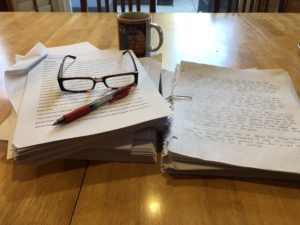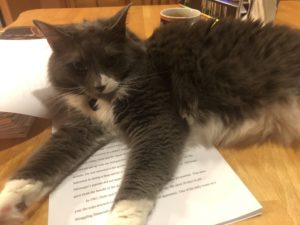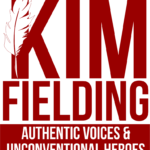Today I’m thinking about the power of words.
 It’s a logical idea for me to contemplate; not only am I a writer, but words are the primary tool of my day job as well since I’m a university professor. Whether producing or consuming, I live among words. It’s a topic of special concern to me right now because I just finished writing 50K+ words for National Novel Writing Month, and now I’m wading through endless words as I grade term papers and exams.
It’s a logical idea for me to contemplate; not only am I a writer, but words are the primary tool of my day job as well since I’m a university professor. Whether producing or consuming, I live among words. It’s a topic of special concern to me right now because I just finished writing 50K+ words for National Novel Writing Month, and now I’m wading through endless words as I grade term papers and exams.
We all know that words are some of the most powerful tools, and because you’re readers, you’re also well-aware of how words can entertain and inform. But they can do more than that. They can elicit strong emotions. They can bring comfort or terror. They can frustrate or baffle (as evidenced by many of those term papers and exams). They can isolate or unite. They can further old biases and hatreds or they can be a catalyst for change.
Or, as demonstrated by my cat Niki, they can make a really comfy couch.
I wrote a character once who, due to brain damage from an accident, could no longer produce words, although he could still understand them. I’ve written characters with other disabilities as well, but Drew’s aphasia was perhaps the most challenging from an authorial perspective, especially since the story’s not told from his point of view. It’s true that we can communicate a great deal nonverbally, but doing so exclusively can be incredibly difficult–as I experienced personally the time I attempted to buy a jar opener in a department store in a country where I don’t speak the language.
I am in love with the magic that words can accomplish. One of my Christmas stories this year takes place in New York City in December 1888. As I wrote, I tried very hard to use words to give a real sense of what it would have been like to walk through the city as my characters do–not just in terms of what they see, but also what they hear, what they smell, what the freezing rain feels like as it falls on their skin, what a meal bought from pushcart vendors tastes like. And perhaps I was met with some success, because some reviewers have commented that they felt as if the story transported them to that setting. Isn’t that wonderful? An author puts some squiggly marks on paper or screen, and readers get to time-travel and teleport!
Since it’s that time of year, let me sign off this time with some especially heartfelt words. Thank you for letting me share my words with you, and may your season be filled with peace, love, and joy!
***
 Kim Fielding is the bestselling author of numerous m/m romance novels, novellas, and short stories. Like Kim herself, her work is eclectic, spanning genres such as contemporary, fantasy, paranormal, and historical. Her stories are set in alternate worlds, in 15th century Bosnia, in modern-day Oregon. Her heroes are hipster architect werewolves, housekeepers, maimed giants, and conflicted graduate students. They’re usually flawed, they often encounter terrible obstacles, but they always find love.
Kim Fielding is the bestselling author of numerous m/m romance novels, novellas, and short stories. Like Kim herself, her work is eclectic, spanning genres such as contemporary, fantasy, paranormal, and historical. Her stories are set in alternate worlds, in 15th century Bosnia, in modern-day Oregon. Her heroes are hipster architect werewolves, housekeepers, maimed giants, and conflicted graduate students. They’re usually flawed, they often encounter terrible obstacles, but they always find love.
After having migrated back and forth across the western two-thirds of the United States, Kim calls the boring part of California home. She lives there with her husband, her two daughters, and her day job as a university professor, but escapes as often as possible via car, train, plane, or boat. This may explain why her characters often seem to be in transit as well. She dreams of traveling and writing full-time.
Follow Kim:
Website: http://www.kfieldingwrites.com/
Facebook: http://facebook.com/KFieldingWrites
Twitter: @KFieldingWrites
Email: Kim@KFieldingWrites.com
Newsletter: http://eepurl.com/bau3S9
A complete list of Kim’s books: http://www.kfieldingwrites.com/kim-fieldings-books/

